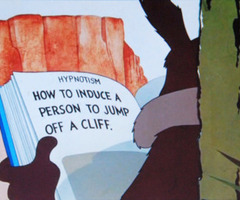Augmented by some amusing cartoons, I’ve already warned that the hysteria about the fiscal cliff is basically a ploy by the politicians to extract more revenue to finance bigger government.
Elaborating on this concern, I wrote a column for today’s New York Daily News. I started with a description of the three issues that are getting lumped together.
…we face the threat of higher tax rates for some or all taxpayers on Jan. 1. …there’s also a possibility of a “sequester” — automatic budget cuts that also are scheduled to take place on Jan. 1. And politicians have been spending so much money that we’re about to bump up against the nation’s debt limit. So it’s likely that all these issues will get joined as President Obama and congressional leaders attempt to negotiate a deal.
I then outlined what might happen if the 2001 and 2003 tax cuts expire.
The higher tax rate portion of the fiscal cliff exists because 2001 and 2003 tax cuts are scheduled to expire at the end of the year. All taxpayers would see more of their earnings confiscated by the IRS beginning in January if Washington fails to act. All tax brackets would increase, taxes on dividends and capital gains would rise… The total yearly hike would be in the range of $400 billion. This could have profound implications, both because of immediate reductions in take-home pay and the negative long-run impact of economic stagnation.
And I explained how the problem should be solved, but warned that the biggest stumbling block is President Obama’s fixation on class-warfare tax policy.
Many are worried about these potential changes, with Congressional Budget Director Doug Elmendorf warning that Americans should expect a “significant recession” and the loss of some 2 million jobs. From my point of view, all the tax cuts should be made permanent. The bad news, to me, is that Obama wants to raise rates on investors, entrepreneurs, small business owners and other “rich” taxpayers. The sequester should be replaced by a more targeted set of fiscal reforms to restrain the growth of the entitlement state. Finally, the debt limit should be raised in exchange for a workable and enforceable cap on government spending.
I originally included an explanation of why the CBO estimate is flawed because of Keynesian methodology, but those sentences fell victim to space constraints. Nonetheless, it’s worth noting that even folks on the left think big tax hikes aren’t a good idea (though they’re perfectly happy to have a series of small tax hikes that get you to the same Greek destination).
But set that aside. Is there any chance of seeing my solution adopted? Well, there’s no chance of a spending cap. The sequester will be stopped, but it won’t be replaced by better reforms.
The great unknown is what will happen on the tax side. I fear GOPers will surrender, even though they won the very same battle back in 2010 when they didn’t even control the House and had fewer seats in the Senate.

